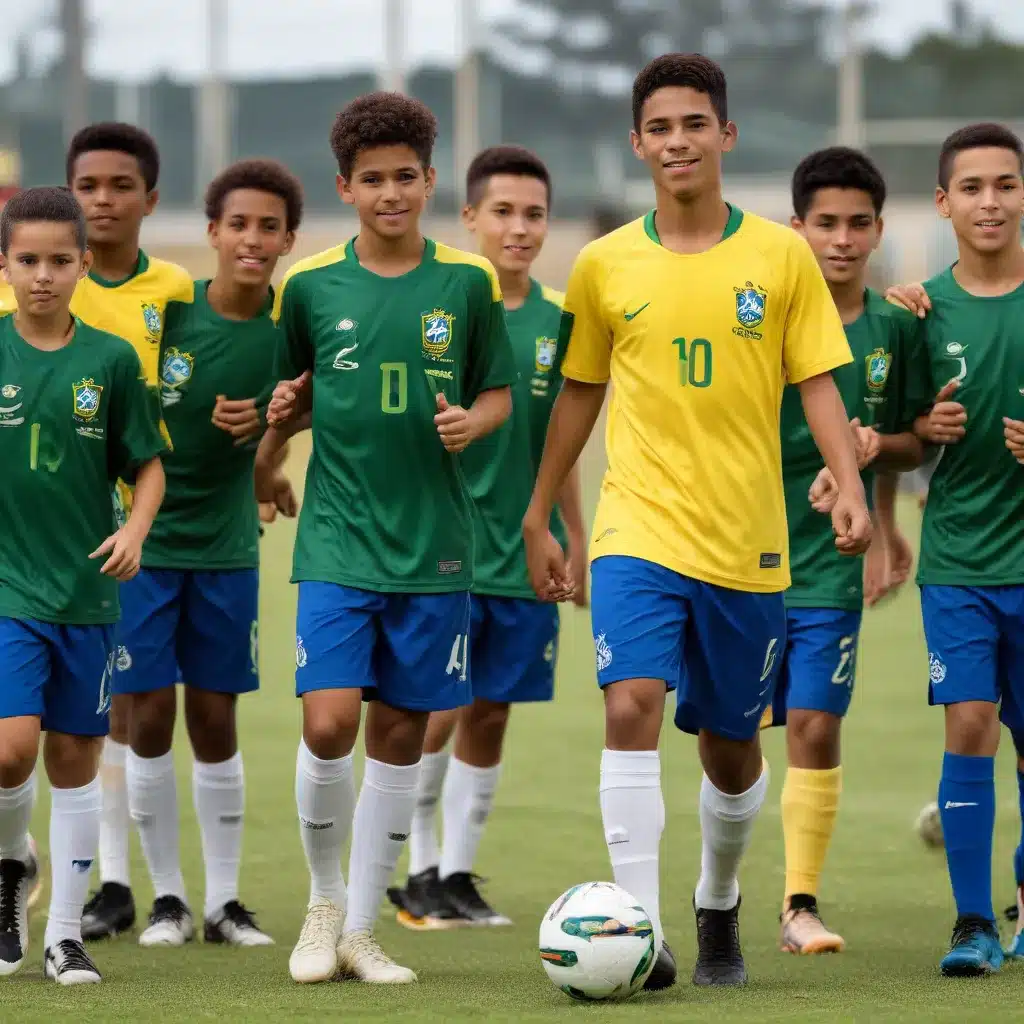
Brazilian Football Ecosystem
Brazil’s footballing legacy is one of unparalleled passion, flair, and relentless innovation. From the samba-inspired dribbles of Pelé to the tactical mastery of Tele Santana, the nation’s contributions to the beautiful game are woven into the fabric of global football. Yet, as the world becomes increasingly interconnected, the challenge for Brazilian youth is to cultivate a global mindset that can translate their raw talent onto the international stage.
Youth Development Pathways
At the heart of Brazil’s footballing prowess lies a robust youth development system, nurturing the next generation of stars from an early age. Academies like Fluminense, Corinthians, and Santos have long been breeding grounds for raw talent, honing technical skills and tactical understanding from a tender age. The escolinhas (football schools) scattered across the country offer a grassroots platform for children to immerse themselves in the game, developing a deep-rooted passion that often lasts a lifetime.
However, the modern landscape demands more than just technical excellence. As Brazilian youngsters seek to make the leap to Europe and beyond, they must be equipped with a global perspective that transcends the familiar confines of the domestic game.
Talent Identification Practices
Talent identification in Brazilian football has evolved beyond the traditional scouting methods. Clubs are now leveraging data analytics to uncover hidden gems, analyzing physical, technical, and tactical attributes to predict future potential. Yet, the true test lies in a player’s ability to adapt and thrive in unfamiliar environments.
Player Transition to International Stage
The transition from the vibrant Brazilian leagues to the highly competitive international arena can be daunting. Players must not only showcase their individual brilliance but also demonstrate the mental fortitude to navigate cultural differences, tactical variations, and heightened media scrutiny. The ability to seamlessly integrate into new teams and systems has become a crucial differentiator for Brazilian exports seeking to make their mark on the global stage.
Global Mindset in Football
Cultivating a global mindset in Brazilian youth footballers is paramount to their success on the international stage. This multifaceted approach encompasses cross-cultural competencies, psychological readiness, and tactical adaptability.
Cross-cultural Competencies
In an era of increased globalization, the ability to navigate diverse cultural landscapes has become a vital skill for aspiring Brazilian footballers. Understanding the nuances of communication, social etiquette, and interpersonal dynamics in different countries can mean the difference between thriving and merely surviving. Clubs and academies must invest in cultural awareness training, equipping their young talents with the tools to seamlessly integrate into international teams and environments.
Psychological Readiness
The psychological demands of playing at the highest level cannot be overstated. Brazilian youth must be prepared to handle the intense scrutiny, pressure, and expectations that come with representing their country on the global stage. Developing resilience, emotional intelligence, and the ability to perform under duress are crucial components of a comprehensive player development program.
Tactical Adaptability
The tactical landscapes of international football can vary significantly from the familiar confines of the Brazilian game. Adapting to different playing styles, formation nuances, and in-game decision-making processes is essential for Brazilian players to thrive in unfamiliar settings. Exposure to international competitions and training with experienced coaches who have global perspectives can help cultivate this crucial tactical adaptability.
Internationalization of Brazilian Football
As Brazilian football continues to assert its dominance on the global stage, the internationalization of the game has become a central focus for clubs, leagues, and the national team.
Exposure to Global Competitions
Participation in prestigious international tournaments, such as the FIFA Club World Cup and the Copa Libertadores, has provided Brazilian clubs with invaluable experience competing against the world’s best. These high-stakes encounters not only showcase the talent of Brazilian players but also challenge them to adapt to different tactical approaches and playing styles.
Networking with International Clubs
The growing influence of Brazilian football has led to an increased network of partnerships and collaborations with top-tier clubs around the world. These connections facilitate player exchanges, joint training camps, and knowledge-sharing sessions, allowing Brazilian youth to gain firsthand experience of the international game and foster relationships with potential future employers.
Career Advancement Opportunities
The lure of European and Asian leagues has long drawn the attention of talented Brazilian players, seeking to test their skills on the global stage. As the internationalization of the game continues, the career advancement opportunities for Brazilian youth have expanded, with more clubs and leagues actively scouting and recruiting from the nation’s rich talent pool.
Challenges and Considerations
While the internationalization of Brazilian football presents exciting prospects, it also comes with a unique set of challenges that must be addressed.
Logistical Barriers
The geographical distance and logistical complexities of international football can pose significant hurdles for young Brazilian players. Adapting to different time zones, climates, and travel schedules can be physically and mentally taxing, requiring a careful balance between training, recovery, and preparation.
Cultural Differences
Beyond the tactical and technical aspects of the game, Brazilian youth must also navigate the intricate web of cultural differences that exist across international football landscapes. Differences in language, social norms, and even dietary preferences can present unexpected obstacles that require a flexible and adaptive mindset.
Institutional Support
The success of Brazilian players on the international stage is contingent on the support and investment of domestic institutions, from clubs and academies to national governing bodies. Ensuring that youth development programs are equipped with the necessary resources, expertise, and infrastructure to prepare players for global competition is a critical consideration.
As Brazilian football continues to captivate the world with its dazzling displays of skill and creativity, the challenge lies in equipping the next generation of stars with the global mindset and adaptability needed to thrive on the international stage. By fostering cross-cultural competencies, psychological resilience, and tactical versatility, Brazilian youth can leverage their inherent talent to leave an indelible mark on the global game.

